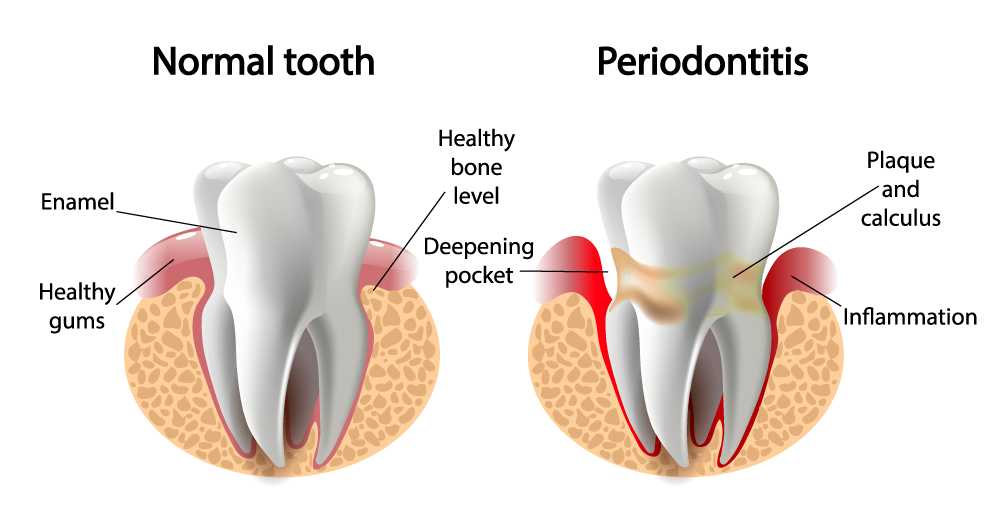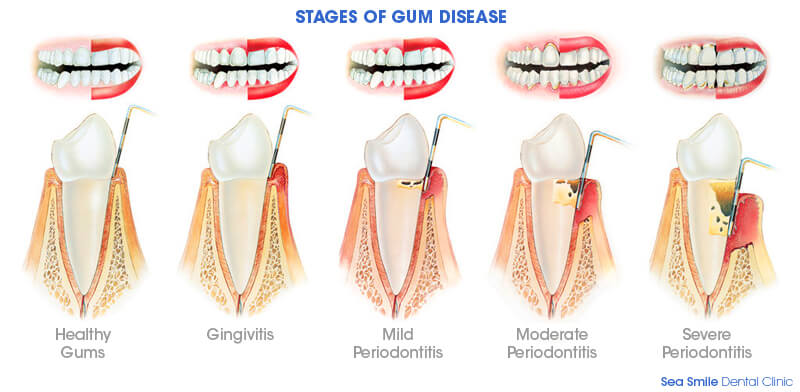
Periodontal disease is the inflammation and infection of the gums. It is caused by plaque, a thick and sticky film of bacteria that builds up on the teeth.
Early stages of gum disease: Bacteria in plaque and calculus can damage the gums and cause gingivitis, an inflammation of the gums.
Advanced stage of gum disease: This stage is called periodontitis and can cause serious damage to teeth, gums and bone that supports the teeth. Periodontitis can result in the loss of many teeth in some people.
Periodontal treatment is to stop or slow down the progression of gum disease.
Signs of Periodontal Disease:

- Red, swollen, tender, painful or bleeding gums
- Gums have shrunk from the teeth
- Persistent bad breath
- A bad taste in the mouth
- Abscesses between teeth and gums
- The fit of a denture has changed
- Loose teeth; drifting apart from teeth, and gaps appearing between teeth.
Diagnosis of Periodontal Disease
The dentists at Drummoyne Dental Practice will check your oral health as well as any changes in the size, shape, appearance and texture of the gums which may indicate disease. They will also check each tooth for movement, as gum disease can cause teeth to shift positions or become loose.
Be certain to give your dentist your complete dental and medical history, including any major illnesses, heart problems, surgery, and reactions to medicines, especially antibiotics. This will help the dentist to determine which treatment is best for you.
Treatment of Periodontal Disease
After the examination of your gums and teeth, a treatment plan will be developed in consultation with you.
Treatment may involve the following:
- Removal of build-ups of plaque and calculus using dental instruments.
- Scaling: removal of plaque and calculus from above gum line, and in shallow pockets below the gum line.
- Root planning: removal of plaque and calculus on tooth roots and in deeper pockets beneath the gum line. Local anaesthetic may be needed to numb the teeth and gums.
- Replacement of fillings.
- Instructions on how to improve your oral hygiene.
- Quit smoking.
Preventing and Controlling Periodontal Disease
You can prevent gum disease by taking good care of your teeth every day and having regular dental check-ups. Daily brushing and flossing will remove most of the plaque build-up, keeping gums and teeth clean as well as reducing the risks of gum disease. Find out more about flossing here.
If you are in need of treatment or have any inquiries, please do not hesitate to contact Drummoyne Dental Practice at 9181 2226.